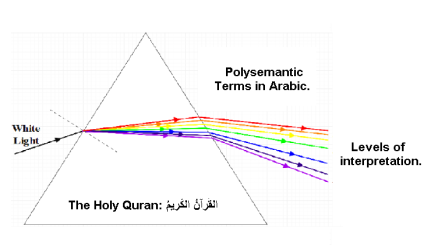Most everything written by humans contains contradictions, errors, unattested assumptions, unverifiable assertions and all manner of problems. Most of the time, we don't care all that much (unless it's one of those Detective novels in which we're all surprised with the big reveal at the end).
So why do we care when it's the Qur'an, or the Bible, or any other scripture? Because, we attach greater importance to these works -- but without any particular reason for assuming that greater importance.
In my view, all such works should be regarded the same way we regard the writings of Socrates or Plato or Descartes or A.C. Grayling or any other philosopher -- or indeed any playwrite or novelist or poet: that they provide us with possible insights, that we can accept or dismiss, to help us in our efforts to live a good life. Good for ourselves and good for those around us.
We only go wrong when we accept such works, whether scripture, philosophy, fiction or poetry as holding irrefutable truth ---- they do not. They only give us hints as to other ways to view our world, to think about who we are and our place in it.

